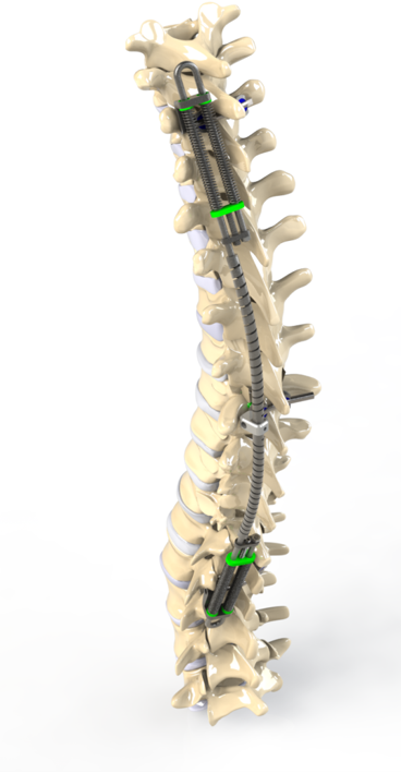Scoliosis is a spinal deformity that affects 2-5% of children, and which must be treated if it is progressive over time. Relatively mild cases are treated by bracing, while severe cases require surgery. A brace needs to be worn 23 hours a day, causing discomfort and poor compliance. Surgery, on the other hand, leads to irreversible loss of spinal motion.
An implant has been developed by a UMCU pre-spin-off that combines the best of these two options. It is flexible and attaches directly to the spine, thus functioning as an “internal brace”. It applies correctional forces directly to the spine without restricting spinal motion or growth. Thus, it slowly, but continuously corrects the scoliotic spine deformity. Pre-clinical studies have shown its efficacy.
In this project, we aim to develop the current prototype (TRL5) further to make it ready for a pilot study in humans. The redesign is targeted to the fixation system as the screws that were used are no longer available on the market. With the redesign, Medical Device Regulation documents are generated as well as the IMDD to acquire METC permission. In the future, after successful clinical testing, a start-up company will bring the system to the market.

